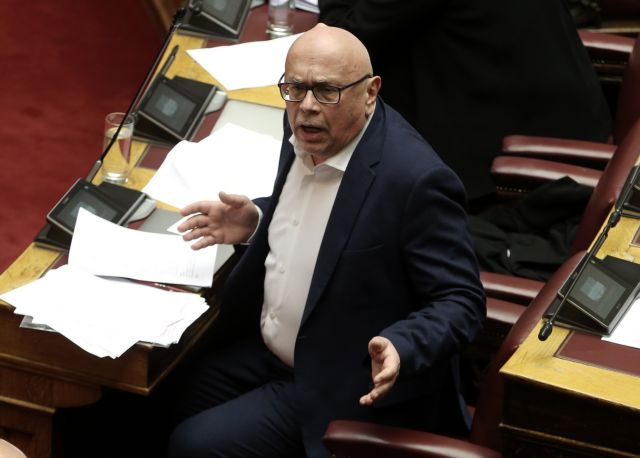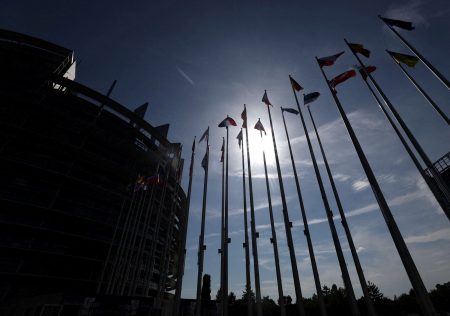The ruling SYRIZA party appears poised to pursue a resolution of Greek-Turkish disputes based on the model of the Greece-North Macedonia Prespa agreement, as was indicated in the statements of its MPs at a meeting today of the sub-committees of the Nato Parliamentary Assembly.
According to SYRIZA MP Christos Karagiannidis, the head of the Greek delegation at Nato, “We must solve the problems between us with an honourable compromise as we did with North Macedonia.”
SYRIZA MP Kostas Douzinas, the Chairman of the Parliamentary Foreign Affairs and Defence Committee (photo), responded to the argument of members of the Turkish delegation that a portion of the eventual revenues from the exploitation of Cyprus’ huge offshore gas deposits should go to the Turkish-Cypriots.
“Over one-third of the territory [of Cyprus] is under foreign occupation. The formal position regarding Cyprus is that when there is extraction and exploitation [of hydrocarbons], the profits will go to a sovereign fund and a part will go to the Turkish-Cypriots in a reunited Cyprus. There is nothing that divides the two peoples. It is the political forces that have disputes,” Douzinas said.
Threats against Nicosia from Turkish MP
Ahmet Yildiz, an MP of Erdogan’s AKP and a former deputy foreign minister, maintained that, “There are certain skirmishes. For me to describe them as unilateral violations is not just. Turkey is the last side that is to blame in Cyprus. There could have been a settlement at [Cyprus problem talks in Switzerland’s] Crans Montana. Turkey is not a party to the Law of the Sea Treaty, which the Greek side describes as international law. Turkey has a longer coastline on the Aegean. This is a dispute and it presupposes negotiations which until now have not been possible because the Greek side insists on unilateral actions and interpretations,” Yildiz said.
Ankara has for over four decades, and especially since the 1996 Imia crisis, attempted to drag Athens into a no-holds-barred negotiation on the overall legal status of the Aegean and Turkey’s territorial claims there. Until now, Athens has rejected any direct negotiations on its sovereign rights under international treaties and law.
“In Cyprus there are two sides. If there is a need for hydrocarbons it will be addressed after a resolution [of the Cyprus problem] or with a joint agreement between the two sides to split the [gas exploration] permits between them. This is an opportunity for the region. If the Greek-Cypriots want to take it, the door is open. When there is extraction [of hydrocarbons] in an area that belongs to two sides, that is unacceptable and there will be consequences. I hope that the two sides can work to achieve cooperation,” said Yildiz.
Another one of Erdogan’s AKP MPs, Osman Askin Bak, appeared receptive to the SYRIZA MPs notion that Greek-Turkish differences can be resolved along the lines of the Prespa Agreement model.
“It has been one month since the Greek Prime Minister’s visit to Turkey and his talks with the Turkish President, and I believe there will be further progress. We must talk more and exchange more visits. I lunched today with the Greek Parliament Speaker and I believe that in the future we shall have a resolution of our differences,” he said.





